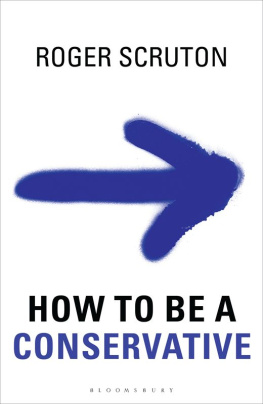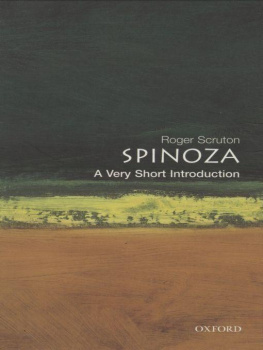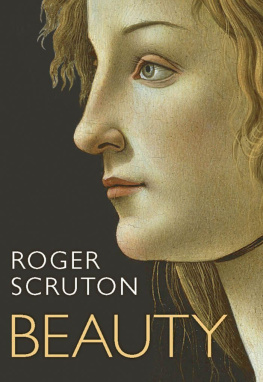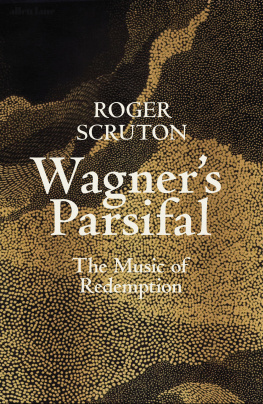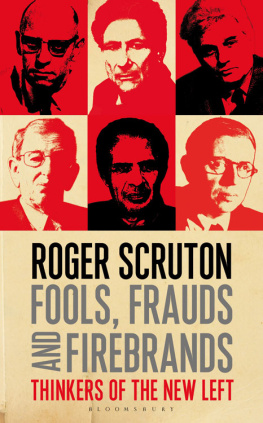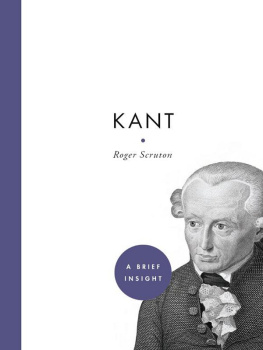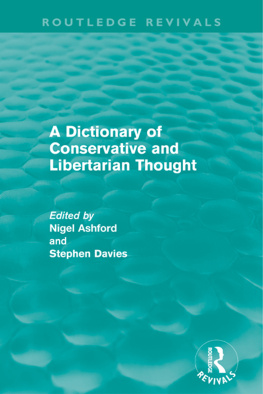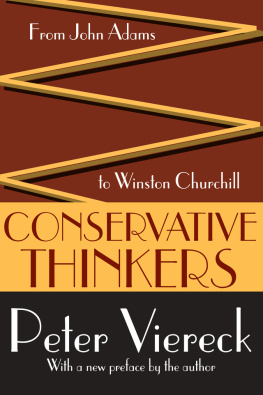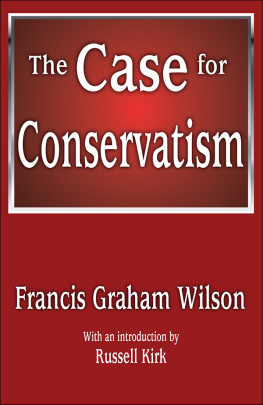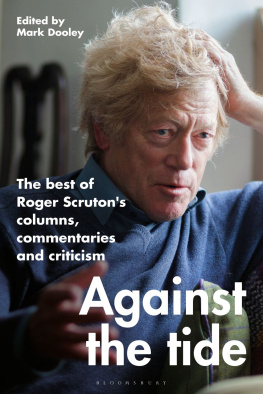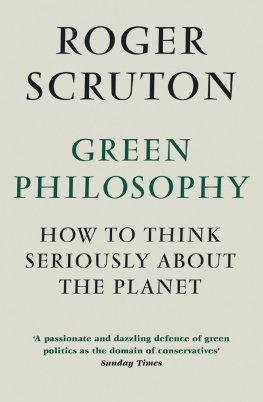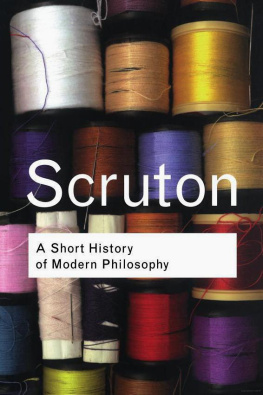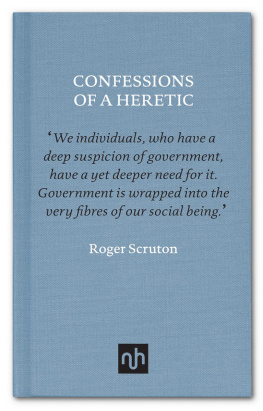HOW TO BE A CONSERVATIVE
How to be a Conservative
Roger Scruton
Contents
The conservative temperament is an acknowledged feature of human societies everywhere. But it is largely in English-speaking countries that political parties and movements call themselves conservative. This curious fact reminds us of the enormous and unacknowledged divide that exists between those places that have inherited the traditions of English common-law government, and those that have not. Britain and America entered the modern world acutely conscious of their shared history. Later, through the traumas of the twentieth century, the two countries stayed together in defence of the civilization that united them, and even today, when Britain, to the general discontent of its people, has joined the European Union, the Atlantic Alliance retains its hold on popular affection, as a sign that we stand for something greater than our creature comforts. Just what is that thing? In the time of Thatcher and Reagan the answer was given in one word: freedom. But that word demands a context. Whose freedom, how exercised, how circumscribed and how defined?
A book has been written in America devoted to the medieval writ of Habeas corpus a writ sent in the kings name commanding whoever might be holding one of his subjects to release that person or to bring him to trial before the kings courts. The continuing validity of this writ, the author argues, underpins American freedom, by making government the servant and not the master of the citizen. Nowhere outside the anglosphere is there the equivalent of Habeas corpus , and all attempts to curtail its extent or effect are greeted by English-speaking people with defiance. It expresses, in the simplest possible terms, the unique relation between the government and the governed that has grown from the English common law. That relation is one part of what conservatives uphold in freedoms name.
In explaining and defending conservatism, therefore, I am addressing my remarks primarily to the English-speaking world. I am assuming a readership for whom common-law justice, parliamentary democracy, private charity, public spirit and the little platoons of volunteers describe the default position of civil society, and who have yet to become entirely accustomed to the top-down authority of the modern welfare state, still less to the transnational bureaucracies that are striving to absorb it.
There are two kinds of conservatism, one metaphysical, the other empirical. The first resides in the belief in sacred things and the desire to defend them against desecration. This belief has been exemplified at every point in history and will always be a powerful influence in human affairs. In the concluding chapters of this book I therefore return to it. But for most of the preceding pages I shall be concerned with more down-to-earth matters. In its empirical manifestation, conservatism is a more specifically modern phenomenon, a reaction to the vast changes unleashed by the Reformation and the Enlightenment.
The conservatism I shall be defending tells us that we have collectively inherited good things that we must strive to keep. In the situation in which we, the inheritors both of Western civilization and of the English-speaking part of it, find ourselves, we are well aware of what those good things are. The opportunity to live our lives as we will; the security of impartial law, through which our grievances are answered and our hurts restored; the protection of our environment as a shared asset, which cannot be seized or destroyed at the whim of powerful interests; the open and enquiring culture that has shaped our schools and universities; the democratic procedures that enable us to elect our representatives and to pass our own laws these and many other things are familiar to us and taken for granted. All are under threat. And conservatism is the rational response to that threat. Maybe it is a response that requires more understanding than the ordinary person is prepared to devote to it. But conservatism is the only response that answers to the emerging realities, and in this book I try to say, as succinctly as I can, why it would be irrational to adopt any other.
Conservatism starts from a sentiment that all mature people can readily share: the sentiment that good things are easily destroyed, but not easily created. This is especially true of the good things that come to us as collective assets: peace, freedom, law, civility, public spirit, the security of property and family life, in all of which we depend on the cooperation of others while having no means singlehandedly to obtain it. In respect of such things, the work of destruction is quick, easy and exhilarating; the work of creation slow, laborious and dull. That is one of the lessons of the twentieth century. It is also one reason why conservatives suffer such a disadvantage when it comes to public opinion. Their position is true but boring, that of their opponents exciting but false.
Because of this rhetorical disadvantage, conservatives often present their case in the language of mourning. Lamentations can sweep everything before them, like the Lamentations of Jeremiah, in just the way that the literature of revolution sweeps away the world of our frail achievements. And mourning is sometimes necessary; without the work of mourning, as Freud described it, the heart cannot move on from the thing that is lost to the thing that will replace it. Nevertheless, the case for conservatism does not have to be presented in elegiac accents. It is not about what we have lost, but about what we have retained, and how to hold on to it. Such is the case that I present in this book. I therefore end on a more personal note, with a valediction forbidding mourning.
I have greatly benefited from critical comments made by Bob Grant, Alicja Gescinska and Sam Hughes. It would not have been possible to get my thoughts on to the page without the inspiration, scepticism and occasional satire provided by my wife Sophie, and I dedicate the result to her and our children.
Malmesbury, January 2014
Notes
Anthony Gregory, The Power of Habeas Corpus in America (Cambridge: Cambridge University Press, 2013).
For those interested in the elegiac aspect of my position, see England: an Elegy (London: Pimlico, 2001).
It is not unusual to be a conservative. But it is unusual to be an intellectual conservative. In both Britain and America some 70 per cent of academics identify themselves as on the left, while the surrounding culture is increasingly hostile to traditional values, or to any claim that might be made for the high achievements of Western civilization. Ordinary conservatives and many, possibly most, people fall into this category are constantly told that their ideas and sentiments are reactionary, prejudiced, sexist or racist. Just by being the thing they are they offend against the new norms of inclusiveness and non-discrimination. Their honest attempts to live by their lights, raising families, enjoying communities, worshipping their gods, and adopting a settled and affirmative culture these attempts are scorned and ridiculed by the Guardian class. In intellectual circles conservatives therefore move quietly and discreetly, catching each others eyes across the room like the homosexuals in Proust, whom that great writer compared to Homers gods, known only to each other as they move in disguise around the world of mortals.
We, the supposed excluders, are therefore under pressure to hide what we are, for fear of being excluded. I have resisted that pressure, and as a result my life has been far more interesting than I ever intended it to be.
I was born towards the end of the Second World War and raised in a lower middle-class household. My father was a trade unionist and a member of the Labour Party, who always wondered whether he had, in becoming a teacher in a primary school, betrayed his working-class origins. For politics, in Jack Scrutons eyes, was the pursuit of class war by other means. Thanks to the unions and the Labour Party, he believed, the working class had begun to drive the upper classes into the corner from where they would be forced to deliver up their stolen assets. The major obstacle to this cherished outcome was the Conservative Party, which was an establishment of big business, property developers and landed aristocrats who were hoping to sell the inheritance of the British people to the highest bidder and then move to the Bahamas. Jack regarded himself as locked in a lifelong struggle with this establishment, on behalf of the Anglo-Saxon peasantry whose birthright had been stolen a thousand years earlier by the Norman knights.
Next page
